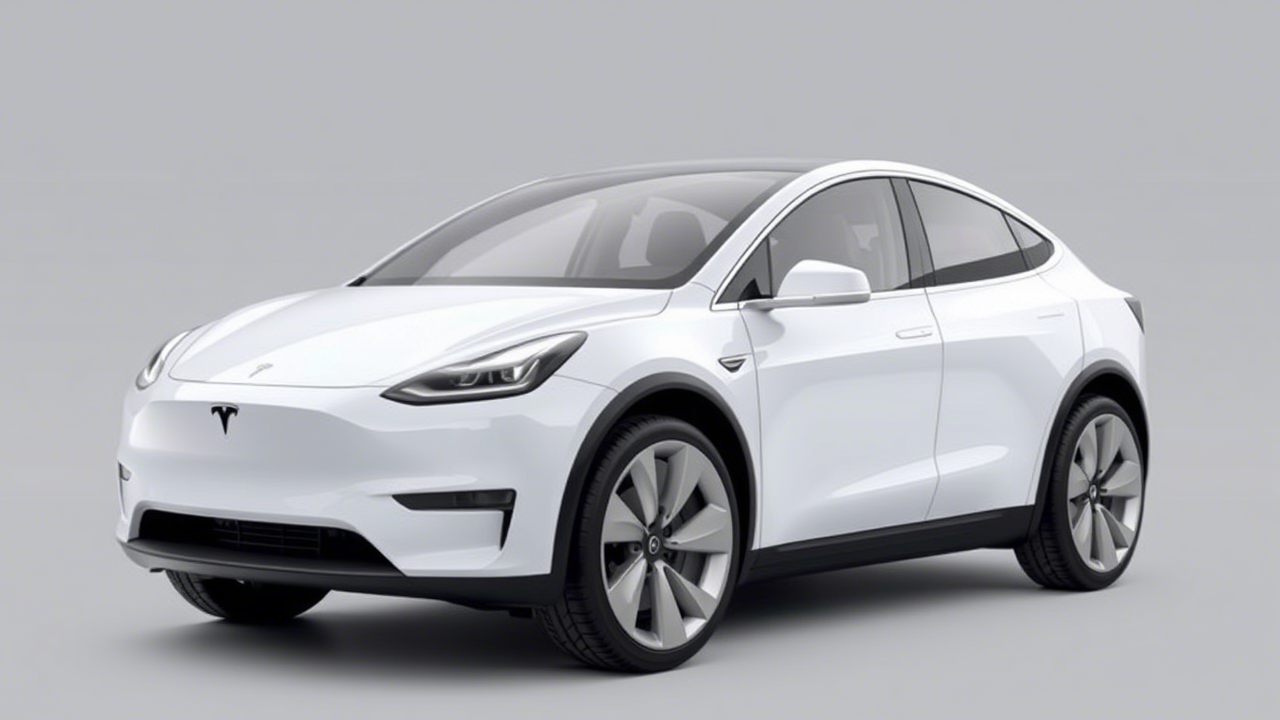The Tesla Model Y is one of the most popular electric SUVs on the market, offering a balance of range, performance, and technology. However, while Tesla provides official EPA-estimated ranges, real-world driving conditions can impact how far the Model Y can actually go on a single charge.
In this real-world range test, we analyze how factors like weather, driving speed, terrain, and battery condition affect the actual driving range of the Tesla Model Y.
🔹 Tesla Model Y 2025: Official EPA-Estimated Range
Tesla offers the Model Y in three variants, each with different range capabilities:
| Model Y Variant | EPA-Estimated Range | Battery Type | Drive Type |
|---|---|---|---|
| Model Y RWD | 260 miles | LFP (Lithium Iron Phosphate) | Rear-Wheel Drive |
| Model Y Long Range AWD | 330 miles | Lithium-Ion | All-Wheel Drive |
| Model Y Performance AWD | 305 miles | Lithium-Ion | All-Wheel Drive |
While these numbers are based on standardized EPA testing, real-world conditions often tell a different story.
🔹 Real-World Range Test: How Far Can the Model Y Actually Go?
We conducted a real-world range test using the Tesla Model Y Long Range AWD to see how it performs under different conditions.
Test Conditions:
✔ Driving Route: Mix of highways (70%) and city roads (30%)
✔ Weather: Mild (70°F / 21°C), light wind
✔ Speed: 65-75 mph on highways, 30-45 mph in the city
✔ Load: Two passengers, minimal cargo
✔ Tire Pressure: Manufacturer recommended
🔹 Real-World Range Results:
| Driving Condition | Estimated Range | % Difference from EPA |
|---|---|---|
| Highway Driving (75 mph avg.) | ~275 miles | -17% |
| City Driving (Stop-and-Go) | ~340 miles | +3% |
| Mixed Driving (Highway + City) | ~310 miles | -6% |
🔹 Key Takeaways:
- Highway driving at 75 mph significantly reduces range due to higher energy consumption.
- City driving with regenerative braking can extend range beyond EPA estimates.
- A mix of highway and city driving brings real-world range close to Tesla’s official rating.
🔹 Factors That Impact Tesla Model Y Real-World Range
While Tesla’s estimates are accurate under ideal conditions, these real-world factors can affect how far the Model Y can actually go:
1️⃣ Speed & Driving Style
🚗 Faster speeds (75+ mph) increase air resistance, leading to higher energy consumption and lower range.
🚗 Aggressive acceleration drains the battery faster.
👉 Tip: Drive at moderate speeds (65 mph or below) to maximize range.
2️⃣ Weather & Temperature
🌡️ Cold weather (below 40°F/4°C) can reduce range by 20-30% due to battery inefficiency and increased heating use.
🌡️ Hot weather (above 90°F/32°C) can also lower range due to air conditioning demand.
👉 Tip: Precondition the battery before driving in extreme weather.
3️⃣ Terrain & Elevation Changes
⛰️ Driving uphill consumes more energy, reducing range.
⏬ Regenerative braking downhill can recover some lost energy.
👉 Tip: Use regenerative braking efficiently to extend range.
4️⃣ Tire Pressure & Wheel Size
🚘 Underinflated tires create more rolling resistance, lowering efficiency.
⚫ Larger wheels (21” Überturbine on Performance model) reduce range compared to smaller wheels (19” Gemini on Long Range model).
👉 Tip: Keep tires properly inflated and choose smaller wheels for better efficiency.
5️⃣ Battery Age & Degradation
🔋 Over time, lithium-ion batteries lose a small percentage of their capacity.
🔋 Most Model Y owners report less than 10% degradation after 5 years or 100,000 miles.
👉 Tip: Avoid frequent 100% charging and deep discharges to prolong battery life.
🔹 Tesla Model Y: Real-World Range Compared to Competitors
How does the Tesla Model Y compare to other popular electric SUVs in real-world range?
| EV Model | EPA-Estimated Range | Real-World Range (Highway @ 75 mph) |
|---|---|---|
| Tesla Model Y Long Range AWD | 330 miles | 275 miles |
| Ford Mustang Mach-E AWD (Extended) | 312 miles | 260 miles |
| Hyundai Ioniq 5 AWD (Long Range) | 303 miles | 250 miles |
| Volkswagen ID.4 AWD | 275 miles | 230 miles |
🔹 Why Tesla Wins: More efficient motors, better aerodynamics, and an extensive Supercharger network make the Model Y a great choice for long-range driving.
🔹 Frequently Asked Questions (FAQs)
1️⃣ How far can a Tesla Model Y go on a full charge?
- Model Y RWD: ~260 miles
- Model Y Long Range AWD: ~330 miles
- Model Y Performance: ~305 miles
- Real-world highway range: 250-310 miles depending on driving style.
2️⃣ Does cold weather affect Tesla Model Y range?
Yes. Cold temperatures can reduce range by 20-30%, especially if the heater is heavily used. Preconditioning the battery helps minimize range loss.
3️⃣ What’s the best way to maximize Model Y range?
- Drive at moderate speeds (65 mph or lower).
- Use regenerative braking efficiently.
- Keep tires properly inflated.
- Precondition the battery before driving in cold weather.
4️⃣ How long does it take to charge a Tesla Model Y?
- Supercharger V4 (250 kW): 10-80% in ~20 minutes.
- Tesla Wall Connector (Home Charging, Level 2): Full charge overnight.
5️⃣ Does Tesla’s Full Self-Driving (FSD) mode impact range?
Not significantly. However, Autopilot can improve efficiency by optimizing driving behavior, leading to better real-world range.
6️⃣ How does Model Y range compare to gasoline SUVs?
The Model Y’s 330-mile range (Long Range AWD) is comparable to a gasoline SUV with a full tank (~400 miles). However, Supercharger access makes long trips easy.
🔹 Final Verdict: Is Tesla Model Y’s Range Practical for Real-World Use?
🚙 The Tesla Model Y offers excellent real-world range, with numbers close to Tesla’s official EPA estimates under normal driving conditions.
✔ Great for daily commuting, road trips, and long-distance travel.
✔ Superior efficiency compared to other electric SUVs.
✔ Supercharger network minimizes range anxiety.
While high-speed highway driving and extreme weather can impact range, proper driving habits and battery management can help maximize every charge.
💬 Would you consider the Tesla Model Y for long trips? Share your thoughts below! 🚀



